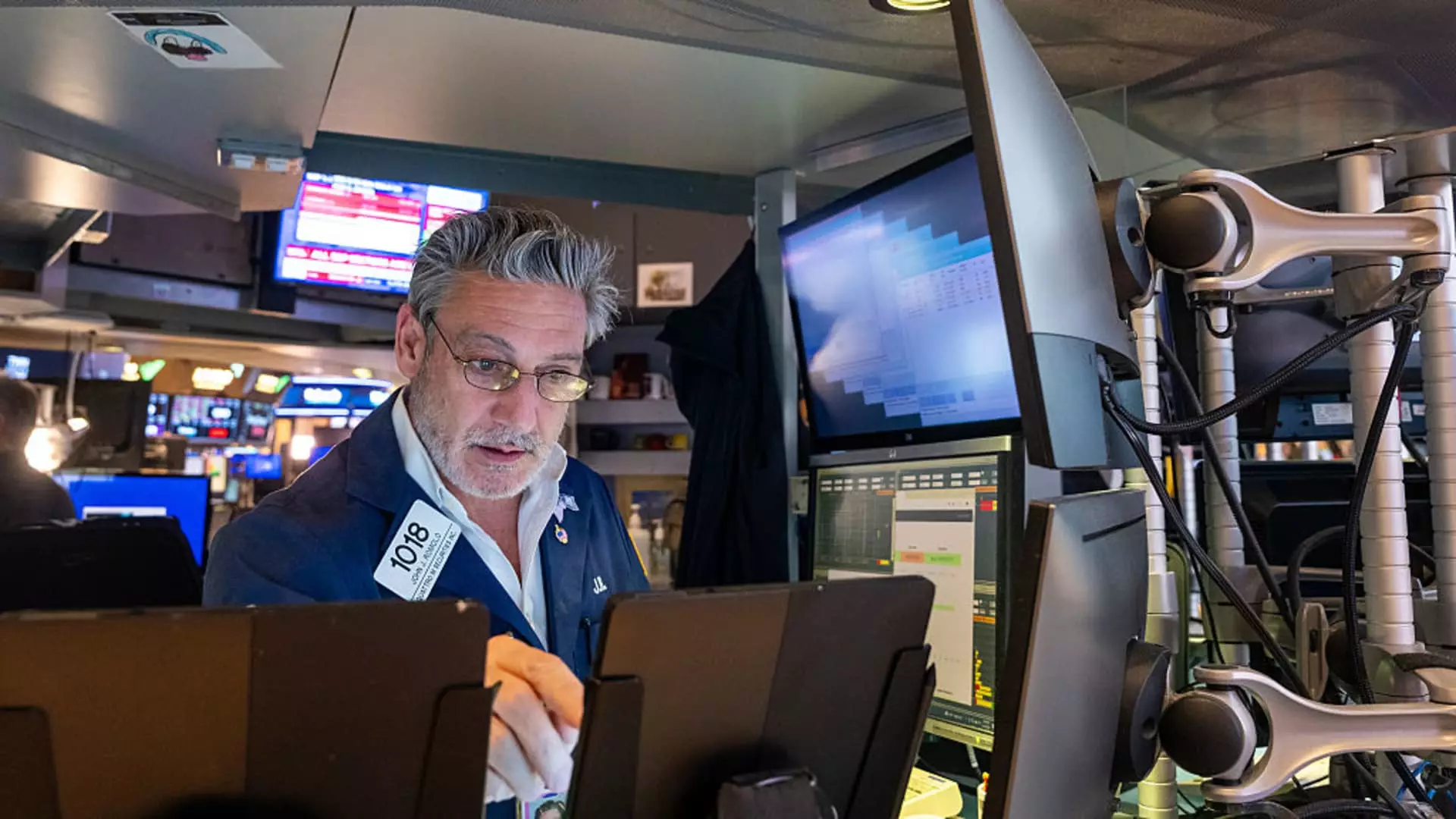In the tumultuous climate of global trade wars and economic volatility, defense stocks have emerged as an unlikely beacon of resilience and growth. While wider markets face a downturn, with the S&P 500 oscillating dramatically, defense companies like Huntington Ingalls Industries and Lockheed Martin have shown remarkable stability. This phenomenon warrants not just attention but also an analysis of why these stocks defy market trends, suggesting a strategic opportunity for investors in a time of uncertainty.
The recent spike in trade tensions, particularly as President Trump escalated tariffs, has sent shockwaves through various sectors. Despite a tumultuous week where the S&P 500 plunged by 3.5% after a significant uptick the previous day, defense stocks have stood buoyant. This resilience can largely be attributed to the domestic orientation of these companies. Most defense manufacturers primarily operate within U.S. borders, thereby insulating themselves from the tariffs that plague other industries. Sheila Kahyaoglu from Jefferies aptly states that these firms don’t operate overseas; therefore, they aren’t subject to the same taxing pressures.
Political Instability: A Boon for Defense
It’s no coincidence that rising political tensions globally aid the defense sector. Political instability, especially in regions like the Middle East and the Pacific Rim, consistently spikes demand for defense spending. Investors need to recognize that uncertainty often translates into lucrative opportunities for those entrenched in the defense sector. As political leaders navigate treacherous waters, defense budgets swell, reflecting a societal reliance on military prowess for global stability.
Tony Bancroft from Gabelli Funds highlighted that roughly 80% of Boeing’s commercial operations derive from domestic sources, while its defense division spikes to an impressive 90%. These statistics bolster the argument that defense firms are well-positioned to weather storms created by international trade disputes. Ultimately, a growing military budget indicates a critical need for investment in national security, further underlining the strength of defense stocks in the current scenario.
Budget Proposals Fueling Growth
Furthermore, the Trump administration’s recent proposal for a fiscal year 2026 budget exceeding $1 trillion for defense has sent ripples of optimism through the sector. Analysts like Don Bilson of Gordon Haskett have underscored that such a budget would shatter records, pointing to an unequivocal commitment to expand defense spending. This expectation bolsters investor confidence in defense stocks, as heightened budgets typically lead to increased contracts and growth prospects for firms engaged in military and defense production.
Investors should keep their eyes peeled for key players such as Huntington Ingalls, which, following remarks from Trump about restoring vitality to shipbuilding, has already seen significant gains. The rhetoric surrounding increased naval spending gives a clear indication that government backing may result in material growth for defense contractors.
Expert Recommendations Amidst Uncertainty
Notably, experts have zeroed in on specific defense stocks with inherent potential for upside. Kristine Liwag from Morgan Stanley emphasizes her backing for Northrop Grumman due to its alignment with Department of Defense necessities. Anticipation surrounding quarterly earnings reports and official budget announcements further positions this company as a robust contender in the sector.
Another standout is L3Harris Technologies—an investment favored by analyst Douglas Harned for its operational improvements and favorable alignment with defense priorities. The projected 20% upside indicated by Harned echoes a sentiment that now might be the prime time for strategic investments in defense stocks. For investors wary of volatility, this could be an ideal sector to focus on, as defense spending appears resilient regardless of the broader market conditions.
In today’s ever-shifting market landscape, turf wars coupled with global uncertainties create an atmosphere ripe for defense stocks. With increased government commitment to military spending bringing potential for troubles ahead, these defensive equities become a safe harbor when a storm is brewing. The geopolitical dynamics, intertwined with monetary policies, could redefine investment pathways in ways previously unimagined. Investors would do well to take notice—securing positions within the defense industry might not just provide stability, but also foster growth in challenging economic times.

